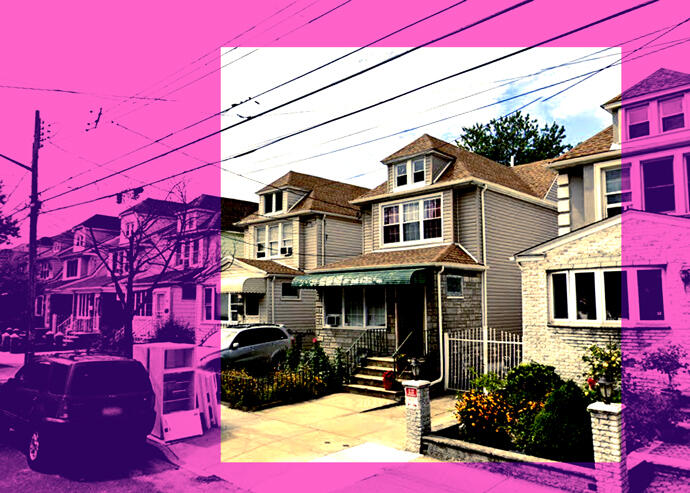
The landlord’s home in South Ozone Park (Google Maps)
For a small landlord in Queens, property ownership has turned into a nightmare.
Vanie Mangal, a physician’s assistant who worked through the darkest days of the pandemic at a Connecticut hospital, has found little comfort at her home in South Ozone Park.
Mangal, 31, who manages the basement and first-floor apartments of a three-unit home owned by her 70-year-old mother, says the last 15 months have been a blur of mounting arrears and conflicts with abusive tenants she isn’t legally permitted to evict, according to the New York Times.
The first-floor renters — couple Rosanna Busgith and Phil Garnett, who moved into the apartment in October 2019 — stopped paying rent in March of last year. They now owe over $24,000 in rent, plus more than $1,700 in natural gas bills.
As Mangal spent her days tending to hospital patients on ventilators, her nights were spent enduring banging on the ceiling below her bed from the tenants, who she claims yell, curse and spit at her and have accused her of stealing mail.
The basement-floor tenants, a mother and daughter who moved into the unit in 2016, also stopped paying rent during the pandemic. A security camera Mangal had set up caught the mother, Anika Mahabir, keying Mangal’s SUV and dropping packages meant for the landlord near the garbage.
The mother and daughter eventually vacated the unit in December after Mangal agreed to drop charges, leaving the landlord with over $9,000 in unpaid rent.
Had it not been for the pandemic, Mangal could have been able to evict the tenants for non-payment. But with a federal moratorium that extends through month’s end and a state ban that lasts until Aug. 31, Mangal finds herself among a group of owners forced to deal with non-paying or unruly tenants until the bans expire.
Mangal filed an eviction case in December against the couple occupying the first-floor unit, but the suit is stuck among 59,000 filings submitted since the beginning of the pandemic. It could take many months for the backlog to clear, the Times reported. An eviction case, even before the pandemic, could last up to a year.
While relief funds are available to cover the $36,000 Mangal has lost in rent, the rules attached to the money would require her to let the couple stay on the lease for another year, something she’s not willing to do.
“It’s been really horrendous,” she told the Times. “What am I supposed to do — live like this?”
Mangal recently received a notification that the tenants had applied for federal emergency rental relief, though she hasn’t received any payments, the Times reported.
To try to make up for the missed rent, which helps cover her mother’s mortgage, the physician’s assistant took a second job working 13-hour shifts at vaccination sites across the city. She’s doubtful the extra cash will make a dent.
“I’m going to have to be supporting these people for the rest of my life,” she said. “I just don’t see an end in sight.”
[NYT] — Suzannah Cavanaugh


